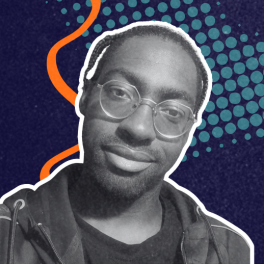
For what I am about to write, some context may be helpful. In Islam, there are two major sects: Sunni and Shia. Sunnis make up the vast majority, comprising about 87% to 90% of the global Muslim population. As a result, Shias form a minority group within Islam, and with that minority status often comes experiences of discrimination, a reality I have personally faced.
When I was 10 years old, my family decided to move into a more comfortable and safe neighborhood, so we began searching for houses and came across a beautiful house we considered buying. It had a great location; it was near a sports complex, a lush green park, and even a school. While visiting the house, my father had asked the owner, a man who seemed quite hospitable and friendly, to come along. The man told us that the house had belonged to his father who recently passed away, upon hearing which my father offered his condolences.
The seller invited us for tea at his home across the street, and we happily accepted. There, he asked our names and my father introduced us. (It is quite easy to identify a Shia by his name, if not his then from his whole family.) With a hint of disgust, the seller asked, “Are you Shia?” To which my father confirmed. The seller, whose head was swallowed by hate, exclaimed, “We will not sell this house to a Shia family!” It might not seem harsh to some, but to a 10-year-old, it felt as if a crime had been committed, the crime being: born in the wrong faith. Everything I had envisioned, the sleepovers with friends, the games I would play in the park, and even the anticipation of joining the nearby school, all came crashing down, burying me under its weight.
Soon, life became a mission: to never be identified as a Shia. I became increasingly cautious, carefully avoiding anything stereotypical that might reveal my identity to others. All this effort was not because I hated myself, but because it seemed people despised me. The seller’s words had such an effect on me that I thought he spoke on behalf of humanity and everyone loathed Shias. I began distancing myself from friends, afraid that if they discovered the truth, they would hate me too. Loneliness and depression became my constant companions. I stopped going out, playing in the park, or even joining others during lunch. I became the quiet kid-a ghost, present but silent and invisible. Only one thing was on my mind, the entire world abhors me. I preferred to be swallowed by the shadows around me than embrace the warmth life had to offer.
By the age of fifteen, my life completely turned around. My father (unaware of the battle within) announced that he was getting me enrolled in a boarding school. At first, I thought it was a joke, but one look at my father’s poker face told me otherwise. I tried to convince him against it but he was adamant. So came the turning point.
At the boarding school, I began hiding for the first couple of weeks, lest people find out that I were a Shia and hate me the same as everyone else. I would offer my prayers in the stillness of the night so that no one could hear or see me (which, in the end, wasn’t very effective).
Still, one day everything changed when a boy asked the dreaded question “Are you Shia?” At first, I decided to lie and reject the notion but for some reason, I also wanted to let him know it all, I wanted to relieve myself of the drama. I replied yes and embraced for the thunder to come. However, there was no thunder, disgust, name-calling, nothing of any sort. I was genuinely taken aback. With time others also asked me and I replied in confirmation, again thinking that I would be berated, but nothing at all.
This was a major lesson life threw my way. I realized that the actions of one man do not define the feelings of the whole group. That it was not a policy but ignorance that led him to speak such nonsense. With time, I began to understand that hiding myself was not a form of defense but rather the triumph of ignorance. By doing so I was only hurting myself. This realization completely transformed the world around me. I saw people for who they truly were. I held opened-minded people close and didn't bother with those who showed prejudice. I realized they have no power over me; I did not give a dime’s worth attention to them. I started opening up, opening up to questions about Shia Islam, questions and debates, all in a respectful manner. Soon instead of hating me, people came to admire me for my knowledge on these topics. They would praise such deeds, not despise them. Whenever I told people about the encounter with the seller, they all said one thing “He was wrong and boorish.” Then they continued to applause me for staying determined and patient. If only they knew.
My question to you is: for how long will we keep discriminating against people from different social, religious, or financial backgrounds? Whether we realize it or not, everyone carries some form of prejudice, and sometimes we show it without even knowing. But it’s up to us to break this cycle. Let’s make sure it ends with our generation.
Support Young Creators Like This One!
VoiceBox is a platform built to help young creators thrive. We believe that sharing thoughtful, high-quality content deserves pay even if your audience isn’t 100,000 strong.
But here's the thing: while you enjoy free content, our young contributors from all over the world are fairly compensated for their work. To keep this up, we need your help.
Will you join our community of supporters?
Your donation, no matter the size, makes a real difference. It allows us to:
- Compensate young creators for their work
- Maintain a safe, ad-free environment
- Continue providing high-quality, free content, including research reports and insights into youth issues
- Highlight youth voices and unique perspectives from cultures around the world
Your generosity fuels our mission! By supporting VoiceBox, you are directly supporting young people and showing that you value what they have to say.





